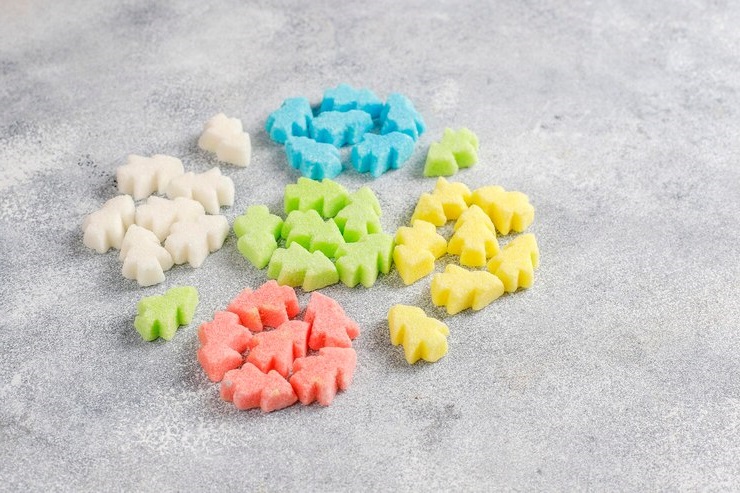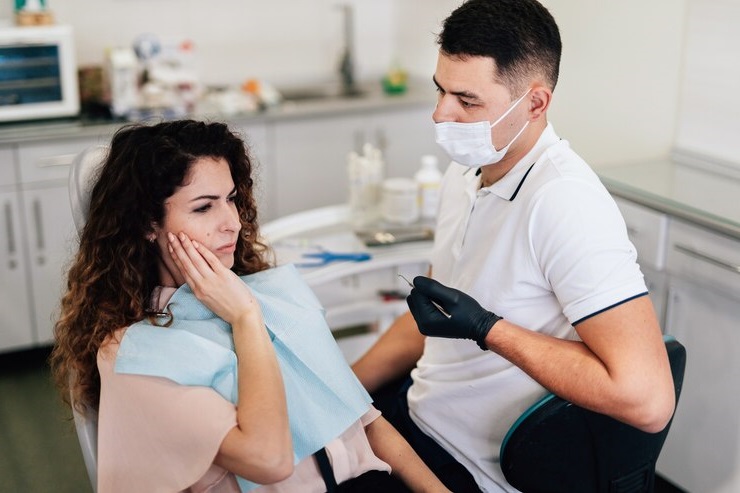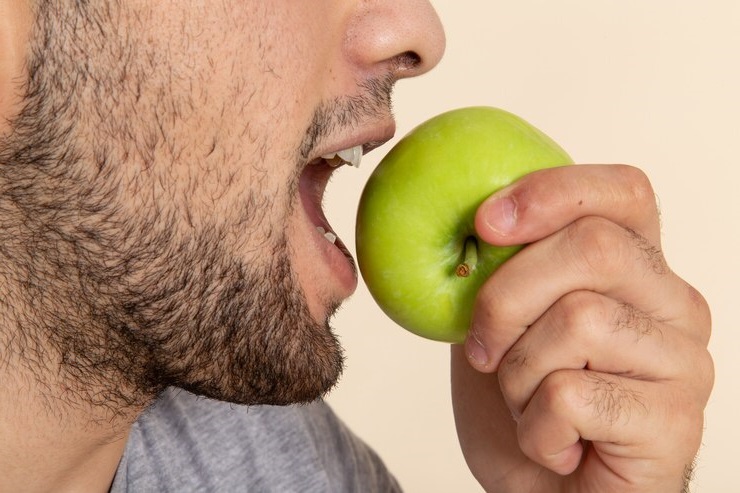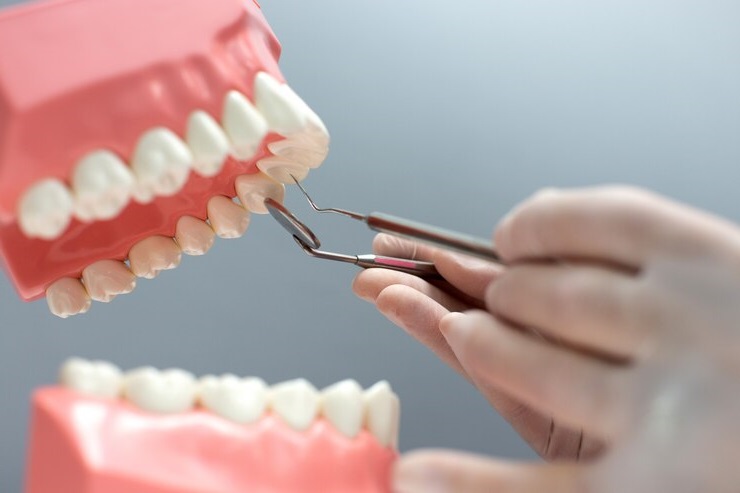
Tooth infections can be incredibly painful and disruptive, affecting your ability to eat, speak, and go about your daily activities comfortably. While traditional treatments often involve antibiotics and dental procedures, there is growing interest in natural remedies like probiotics. You might be wondering, can probiotics get rid of a tooth infection? This article will explore how probiotics might help in managing and preventing tooth infections and how you can incorporate them into your dental care routine.
Understanding Tooth Infections
A tooth infection, also known as a dental abscess, occurs when bacteria invade the inner parts of the tooth or the surrounding gum tissues. This invasion leads to the formation of pus, causing pain, swelling, and sometimes fever. The infection can spread if left untreated, making it essential to address it promptly. Understanding how probiotics can play a role in managing a tooth infection requires a basic knowledge of how these beneficial bacteria work.
Tooth infections typically result from untreated cavities, gum disease, or dental trauma. Symptoms include severe toothache, sensitivity to hot and cold, swelling in the gums or face, and a bad taste in the mouth. In severe cases, the infection can spread to other parts of the body, making early intervention crucial.
How Probiotics Work
Probiotics are live microorganisms that, when consumed in adequate amounts, confer health benefits to the host. They work by balancing the gut and oral microbiota, promoting the growth of beneficial bacteria while suppressing harmful ones. The question is, can probiotics get rid of a tooth infection effectively?
Probiotics help maintain a healthy balance of bacteria in the mouth, which is essential for preventing and managing dental issues. They can inhibit the growth of pathogenic bacteria that cause tooth decay and gum disease, reduce inflammation, and enhance the body’s immune response. By creating a favorable environment in the mouth, probiotics can help manage the symptoms and progression of a tooth infection.
Specific Probiotic Strains for Dental Health
Not all probiotics are created equal. Certain strains are particularly effective in supporting oral health and can be useful in managing a tooth infection. Knowing which strains are the best probiotics for dental health can help you make informed choices.
Lactobacillus reuteri
Lactobacillus reuteri is one of the most studied probiotic strains for dental health. It has been shown to reduce plaque, gingivitis, and bad breath, making it a key player in maintaining oral hygiene.
Benefits of Lactobacillus reuteri
- Reduces Plaque: This strain helps prevent the buildup of plaque on your teeth, which is a major cause of cavities and gum disease.
- Improves Gum Health: By reducing inflammation, Lactobacillus reuteri helps prevent and treat gingivitis.
- Combats Bad Breath: This probiotic can help reduce bad breath by balancing the bacteria in your mouth.
Streptococcus salivarius
Streptococcus salivarius is another important probiotic strain for oral health. It is naturally found in the mouth and helps maintain a healthy balance of bacteria.
Benefits of Streptococcus salivarius
- Fights Bad Breath: This strain produces bacteriocins, which inhibit the growth of odor-causing bacteria.
- Prevents Tooth Decay: Streptococcus salivarius can help reduce the incidence of cavities by outcompeting harmful bacteria.
- Supports Overall Oral Health: This probiotic promotes a healthy oral environment by balancing the microbiota.
Lactobacillus paracasei
Lactobacillus paracasei has been shown to support dental health by reducing the risk of cavities and improving gum health.
Benefits of Lactobacillus paracasei
- Reduces Cavities: This strain helps reduce the incidence of cavities by inhibiting the growth of harmful bacteria that cause tooth decay.
- Improves Gum Health: Lactobacillus paracasei can reduce inflammation and improve the overall health of your gums.
- Enhances Oral Hygiene: Regular use of this probiotic can help maintain a healthy balance of bacteria in your mouth.
How to Incorporate Probiotics into Your Routine
Adding probiotics into your daily routine can be simple and beneficial. Here are some practical ways to do it.
Probiotic-Rich Foods
Consuming foods rich in probiotics is a natural way to support oral health.
- Yogurt: A common and delicious source of probiotics that can help maintain a healthy balance of bacteria in your mouth.
- Kefir: A fermented milk drink that is rich in beneficial bacteria, promoting oral health.
- Sauerkraut: Fermented cabbage that provides a healthy dose of probiotics, supporting overall oral hygiene.
Probiotic Supplements
Probiotic supplements are a convenient way to ensure you are getting enough beneficial bacteria. Look for supplements that are specifically formulated to support oral health.
- Capsules: These are easy to take and provide a concentrated dose of probiotics.
- Powders: These can be mixed into drinks or food for a simple way to consume probiotics.
- Chewables: These are great for those who prefer not to swallow pills and can be specifically designed to support dental health.
Probiotic Dental Products
Using dental products that contain probiotics can also help maintain a healthy balance of bacteria in your mouth.
- Probiotic Toothpaste: Toothpaste formulated with probiotics can help reduce harmful bacteria and promote oral health.
- Probiotic Mouthwash: Mouthwash with probiotics can support a healthy oral environment and reduce bad breath.
- Probiotic Chewing Gum: Chewing gum with probiotics can be a convenient way to support oral health throughout the day.
Home Remedies for Tooth Infections
While probiotics can help manage a tooth infection, combining them with other home remedies can enhance their effectiveness. Here are some tried and tested home remedies to support your oral health.
Saltwater Rinse
A saltwater rinse is one of the simplest and most effective remedies for a dental abscess. Salt has natural antibacterial properties that can help reduce inflammation and kill bacteria.
- Mix 1/2 teaspoon of salt in a glass of warm water.
- Swish the solution around your mouth for about two minutes.
- Spit it out and repeat this process several times a day.
The saltwater rinse creates an inhospitable environment for bacteria, helping to reduce their numbers and soothe the affected area. Regular use can also help draw out the pus from the abscess, providing some relief from the pressure and pain.
Baking Soda
Baking soda has antibacterial properties that can help fight the infection and relieve pain.
- Mix 1/2 teaspoon of baking soda with a pinch of salt and water to make a paste.
- Apply the paste to the affected area using a cotton ball.
- Leave it on for a few minutes before rinsing with warm water.
Baking soda helps neutralize the acidic environment that bacteria thrive in, making it less likely for them to multiply and cause further infection. This paste can also reduce swelling and alleviate discomfort.
Garlic
Garlic is known for its powerful antibacterial and anti-inflammatory properties, making it an excellent remedy for tooth infections.
- Crush a garlic clove to release its juice.
- Apply the crushed garlic directly to the affected area or chew on a garlic clove.
- Repeat this process a few times a day.
Garlic contains allicin, a compound with natural antibacterial properties that can help kill the bacteria causing the abscess. It also has anti-inflammatory effects, which can reduce swelling and pain. Consistent use can provide significant relief from the symptoms of a dental abscess.
Natural Antibiotics
Certain natural antibiotics can help you manage a tooth infection. These natural options can be gentler on your body and still provide effective results.
Oil of Oregano
Oil of oregano has potent antibacterial properties that can help fight infections.
- Mix a few drops of oil of oregano with a carrier oil (like coconut oil).
- Apply the mixture directly to the affected tooth and gums using a cotton ball.
- Repeat this process twice daily.
Oil of oregano contains carvacrol and thymol, compounds known for their antimicrobial activities. These compounds can penetrate the biofilm that protects bacteria, making them more susceptible to being killed by the oil. Using oil of oregano regularly can help reduce the infection and alleviate pain.
Turmeric
Turmeric is renowned for its anti-inflammatory and antibacterial properties, making it effective for treating dental abscesses.
- Mix turmeric powder with water to form a paste.
- Apply the paste to the affected tooth and gums.
- Leave it on for about 20 minutes, then rinse with warm water.
- Repeat twice daily.
Curcumin, the active ingredient in turmeric, inhibits the growth of bacteria and reduces inflammation, helping to manage the infection and alleviate pain. This natural antibiotic can be a powerful ally in your fight against a dental abscess.
Clove Oil
Clove oil is known for its pain-relieving and antibacterial properties. It contains eugenol, which can help reduce pain and fight infection.
- Dip a cotton ball in clove oil.
- Apply it directly to the affected tooth and surrounding gums.
- Repeat a few times a day.
Clove oil numbs the pain and helps kill the bacteria causing the abscess, promoting healing and providing relief from discomfort. Its regular use can make a significant difference in managing a dental abscess.
Herbal Remedies for Tooth Infections
Herbal remedies can offer natural solutions for managing and treating dental abscesses. These remedies can provide relief and help you understand how to manage a tooth infection.
Echinacea
Echinacea is known for its immune-boosting properties and can help fight infections.
- Take Echinacea supplements or use Echinacea tea as a mouth rinse.
- Consult with a healthcare professional before using Echinacea, especially if you have any underlying health conditions.
Echinacea can stimulate the immune system, helping your body to fight off the bacterial infection causing the abscess. It also has anti-inflammatory properties that can reduce swelling and pain. Regular use can support overall oral health and help manage the symptoms of a dental abscess.
Goldenseal
Goldenseal has strong antibacterial properties that can help treat dental abscesses.
- Mix goldenseal powder with water to create a paste.
- Apply the paste directly to the affected area.
- Leave it on for about 20 minutes, then rinse with warm water.
Goldenseal contains berberine, an alkaloid with potent antibacterial and anti-inflammatory effects. This can help reduce the bacterial load in the mouth and promote healing. Using goldenseal as part of your treatment regimen can be an effective way to combat a dental abscess.
Myrrh
Myrrh has been used for centuries for its antiseptic and anti-inflammatory properties.
- Mix myrrh powder with water to form a paste.
- Apply the paste to the affected tooth and gums.
- Leave it on for about 20 minutes, then rinse with warm water.
Myrrh helps to disinfect the mouth and reduce inflammation, making it an effective natural remedy for managing dental abscesses. Regular use can help alleviate the symptoms and support the healing process.
Essential Oils for Tooth Infections
Essential oils can provide powerful antibacterial and anti-inflammatory benefits, making them useful for managing dental abscesses and understanding how to manage a tooth infection.
Tea Tree Oil
Tea tree oil has strong antibacterial properties that can help fight infections.
- Dilute a few drops of tea tree oil with a carrier oil (like coconut oil).
- Apply the mixture to the affected area using a cotton ball.
- Repeat this process twice daily.
Tea tree oil contains terpenes, which have been shown to kill bacteria and reduce inflammation. Applying it to the affected area can help manage the infection and alleviate pain. Regular use can provide significant relief from the symptoms of a dental abscess.
Peppermint Oil
Peppermint oil can help reduce pain and inflammation associated with a dental abscess.
- Mix a few drops of peppermint oil with a carrier oil.
- Apply the mixture directly to the affected tooth and gums.
- Repeat this process twice daily.
Peppermint oil has a cooling effect that can numb the pain and reduce inflammation. Its antibacterial properties also help to reduce the bacterial load in the mouth. Using peppermint oil regularly can help manage the symptoms of a dental abscess and promote healing.
Lavender Oil
Lavender oil is known for its calming effects and antibacterial properties. It can help reduce pain and promote relaxation.
- Mix a few drops of lavender oil with a carrier oil.
- Apply the mixture to the affected area using a cotton ball.
- Repeat this process a few times a day.
Lavender oil can soothe the affected area, reduce inflammation, and help you manage the pain associated with a dental abscess. Its regular use can support overall oral health and provide relief from discomfort.
Over-the-Counter Treatments
While natural remedies can be effective, over-the-counter (OTC) treatments can also provide relief and help you understand how to manage a tooth infection. These medications can help manage pain and reduce the infection until you can see a dentist.
Pain Relievers
OTC pain relievers such as ibuprofen (Advil) and acetaminophen (Tylenol) can help reduce the pain and inflammation associated with a dental abscess. Always follow the dosage instructions on the label and consult a healthcare professional if you have any concerns.
Pain relievers work by blocking the pathways that cause inflammation and pain, providing temporary relief from the severe discomfort caused by a dental abscess. This can help you manage daily activities while waiting for professional treatment.
Antiseptic Mouthwash
Using an antiseptic mouthwash can help reduce bacteria in the mouth and support the healing process.
- Rinse your mouth with the mouthwash according to the instructions on the label.
- Use it twice daily for best results.
Antiseptic mouthwash contains compounds that kill bacteria on contact, reducing the overall bacterial load in your mouth. This can help control the spread of the infection and provide a cleaner environment that supports healing.
Topical Anesthetics
Topical anesthetics like benzocaine can provide temporary relief from pain by numbing the affected area.
- Apply a small amount of the topical anesthetic to the affected area.
- Follow the instructions on the label for proper usage.
Topical anesthetics can be particularly helpful in providing quick pain relief, allowing you to manage the discomfort until you can see a dentist.
Maintaining Good Oral Hygiene
One of the best ways to prevent and manage dental abscesses is by maintaining good oral hygiene. This can help you avoid the need to manage a tooth infection in the first place.
Brushing and Flossing
Regular brushing and flossing are essential for maintaining oral health. Brushing your teeth at least twice a day and flossing daily can help remove food particles and plaque that can harbor harmful bacteria.
- Use Fluoride Toothpaste: Fluoride toothpaste helps strengthen your teeth and reduce the risk of cavities.
- Floss Daily: Flossing helps remove debris between your teeth that brushing alone cannot reach.
- Brush Properly: Use a gentle, circular motion to clean all surfaces of your teeth and gums.
Regular Dental Check-Ups
Regular dental check-ups are important for maintaining oral health. Dentists can identify and address potential issues before they become severe, reducing the risk of infections and other dental problems.
- Professional Cleanings: Dentists can perform cleanings to remove tartar and plaque buildup, helping to maintain a healthy oral environment.
- Early Detection: Regular check-ups allow for early detection of dental issues, which can prevent more serious problems down the line.
- Personalized Advice: Dentists can provide personalized advice on maintaining optimal oral health based on your specific needs.
Healthy Diet and Lifestyle
Eating a balanced diet rich in vitamins and minerals supports overall health, including your teeth and gums. Avoid sugary and acidic foods that can contribute to tooth decay and gum disease.
- Eat a Balanced Diet: Focus on foods rich in nutrients that support overall health.
- Stay Hydrated: Drinking plenty of water helps keep your mouth clean and supports saliva production, which naturally helps protect against tooth decay and infections.
- Limit Sugar and Acid: Avoid foods and drinks that can erode tooth enamel and contribute to the growth of harmful bacteria.
Potential Side Effects and Considerations
While probiotics are generally safe for most people, it’s important to be aware of potential side effects and considerations when incorporating them into your routine.
Possible Side Effects
Some people may experience mild digestive discomfort when first starting probiotics. This is usually temporary as your body adjusts to the new bacteria.
Allergies and Sensitivities
Be mindful of any allergies or sensitivities you might have to ingredients in probiotic supplements or foods. Always read labels carefully and choose products that are free from allergens that may affect you.
Consult with a Healthcare Professional
If you have any underlying health conditions or are taking medication, it’s essential to consult with a healthcare professional before starting probiotics. They can provide personalized advice and ensure that probiotics are safe for you to use.
The Future of Probiotics and Oral Health
Research on probiotics and their impact on oral health is still evolving. Scientists are continually discovering new strains and understanding their mechanisms of action. The future may bring even more targeted probiotic therapies for oral health, potentially offering more effective ways to maintain a healthy mouth.
Innovative Probiotic Products
As research progresses, we may see innovative probiotic products specifically designed to support oral health. These could include advanced formulations of supplements, drinks, and foods that maximize the benefits of probiotics for teeth.
Personalized Probiotic Therapies
In the future, personalized probiotic therapies tailored to an individual’s unique oral microbiome could become available. This approach would provide targeted support for maintaining a healthy balance of bacteria in the mouth, potentially improving oral health outcomes.
Conclusion
Understanding how probiotics can get rid of a tooth infection can significantly impact your oral health. By incorporating probiotics into your daily routine and maintaining good oral hygiene, you can support your overall health and enjoy a healthy, bright smile. Remember, while probiotics can greatly benefit your teeth, they should be used in conjunction with a healthy lifestyle and good oral hygiene practices for the best results.





